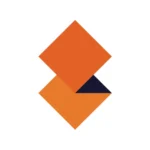
March 19, 2024
Better Together: Socure and Okta Bring a New Age to Modern, Secure Digital Identity for Government

Socure

Socure
Socure is the leading platform for digital identity verification and trust. Its predictive analytics platform applies artificial intelligence and machine learning techniques with trusted online/offline data intelligence from email, phone, address, IP, device, velocity, and the broader internet to verify identities in real time.